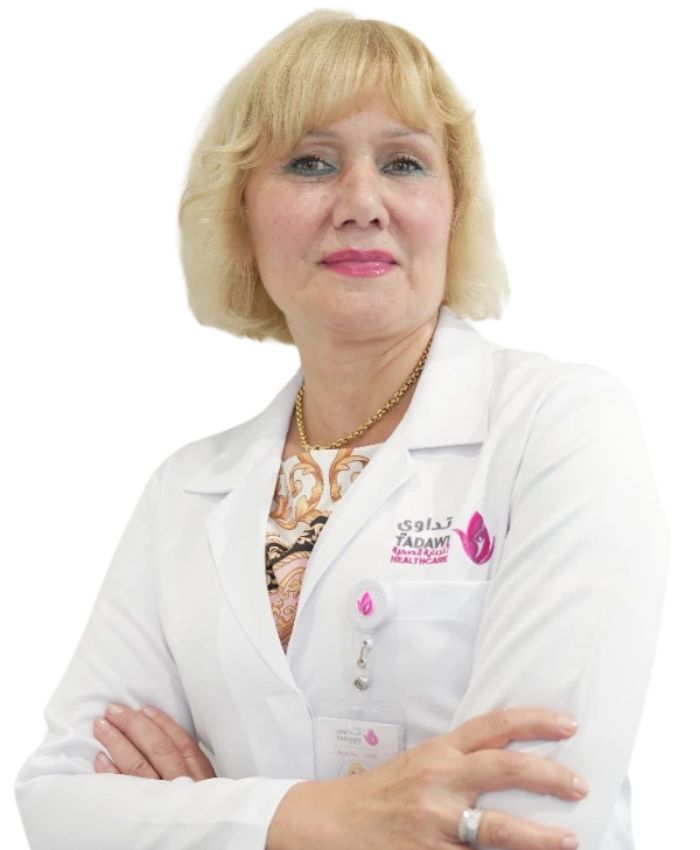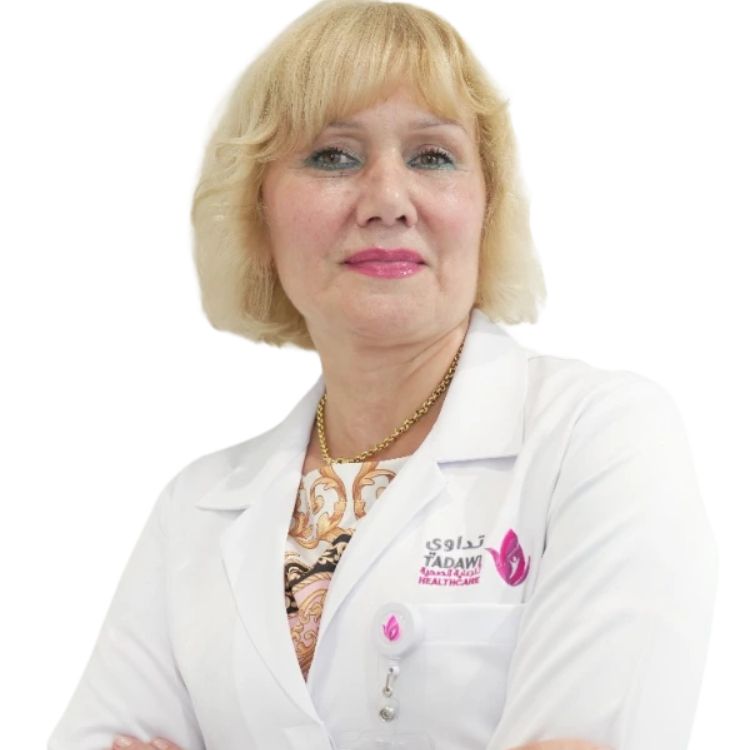Session 01: Advances in Neonatal Care
Neonatal care has seen remarkable progress, transforming outcomes for newborns, especially those born prematurely or with critical conditions. Innovations such as precision ventilation, non-invasive respiratory support, and advanced real-time monitoring have enhanced early detection and intervention. Evidence-based strategies in neonatal nutrition, infection prevention, and neurodevelopmental support have improved survival rates and long-term health. Collaborative, multidisciplinary care—integrating neonatologists, nurses, and allied health professionals—ensures individualized treatment plans.
Session 02: Pediatrics and Neonatology
Pediatrics is a medical specialty dedicated to the comprehensive care of infants, children, and adolescents, focusing on their physical, emotional, and developmental wellbeing. It addresses a wide spectrum of health concerns, from acute illnesses to chronic conditions, while emphasizing preventive care, immunization, and healthy growth. Neonatology, a focused subspecialty within pediatrics, concentrates on the care of newborns, particularly those born prematurely, with low birth weight, or facing medical complications.
Session 03: Neonatology and Perinatology
Neonatology and perinatology are closely related medical specialties focused on optimizing outcomes for newborns and high-risk pregnancies. Neonatology addresses the care of newborns, particularly preterm or medically fragile infants, through advanced interventions, monitoring, and supportive therapies in Neonatal Intensive Care Units (NICUs). Perinatology, or maternal-fetal medicine, specializes in managing high-risk pregnancies, monitoring fetal development, and preventing complications before, during, and after birth.
Session 04: Pediatric Allergy and Immunology
Pediatric Allergy and Immunology focuses on the comprehensive evaluation, diagnosis, and management of children with immune disorders and allergic conditions, including asthma, eczema, and sinusitis. The program is led by internationally recognized experts in clinical research on pediatric and adult allergic diseases. Our team excels in the care of food allergies, anaphylaxis, and related immune disorders, combining clinical expertise with innovative treatment approaches. Through ongoing clinical trials, patients and families gain access to cutting-edge therapies and contribute to the development of new diagnostic tools and treatments, advancing the field and improving outcomes for children with complex allergic and immune conditions.
Session 05: Neonatal and Fetal Nutrition
Neonatal and fetal nutrition plays a pivotal role in the growth, development, and long-term health of a child. While fetal nutrients are primarily supplied by the mother, maternal nutrition does not directly equate to fetal nutrition, as the mother’s own nutrient needs may compete with those of the developing fetus. Adequate supply of essential nutrients supports fetal growth, metabolism, and organ development, while insufficient intake can impair birth outcomes, especially in adolescents or undernourished mothers. After birth, proper neonatal nutrition—through breastfeeding or appropriate formula—ensures continued growth, immune support, and cognitive development, laying the foundation for lifelong health and well-being.
Session 06: Pediatrics Hematology & Oncology
Pediatric Hematology-Oncology is a specialized field of medicine focused on diagnosing, treating, and preventing blood disorders and cancers in children. It encompasses conditions such as anemia, clotting disorders, leukemia, lymphoma, and solid tumors affecting organs, bones, or soft tissues. Pediatric hematologists and oncologists work to understand the underlying causes, risk factors, and cellular mechanisms of these diseases, including tumor cell behavior and signaling pathways. Early detection, evidence-based treatment, and preventive strategies are essential to improve outcomes. While pediatric cancers can be serious, advancements in medical care have made most blood disorders and childhood cancers highly treatable, offering children a better chance at recovery.
Session 07: Pediatric Emergency and Critical Care
Pediatric Emergency and Critical Care delivers specialized, life-saving interventions for acutely ill or injured children. Expert teams, trained in pediatric physiology, provide rapid assessment and treatment in high-pressure environments. Equipped with advanced technology, these units manage conditions like trauma, respiratory distress, and sepsis, ensuring precise care tailored to young patients. Family-centered approaches foster trust, with clear communication during crises. Continuous research and training enhance outcomes, reducing morbidity and mortality. From stabilizing critical cases to coordinating long-term care, pediatric emergency services prioritize swift, compassionate, and effective solutions for vulnerable populations.
Session 08: Stem Cell and Regenerative Medicine in Neonatology
Stem cell and regenerative medicine are revolutionizing neonatal care, delivering innovative treatments for complex conditions. Mesenchymal stem cells (MSCs) and induced pluripotent stem cells (iPSCs) target disorders like intraventricular hemorrhage and necrotizing enterocolitis, fostering tissue repair and reducing inflammation. Advanced research emphasizes optimizing cell delivery methods and ensuring long-term safety for preterm infants. Early clinical data indicate improved neurodevelopmental outcomes and lower morbidity rates. By leveraging state-of-the-art biotechnologies, regenerative medicine redefines neonatal care, providing personalized therapies that enhance survival and quality of life for vulnerable newborns, paving the way for a new era in pediatric medicine.
Session 09: Genetic & Developmental Pediatrics
Neonatal genetics focuses on diagnosing and managing genetic conditions in newborns. It involves assessing genetic risks, conducting genetic testing, and providing counseling to families. Early identification of genetic disorders allows for timely interventions and personalized treatment plans, improving outcomes for newborns and their families. Neonatal geneticists play a crucial role in understanding hereditary conditions, guiding families through complex medical decisions, and promoting the health and well-being of neonates with genetic disorders.
Session 10: Pediatric Gastroenterology
Pediatric Gastroenterology is a specialized discipline dedicated to the prevention, diagnosis, and management of digestive and hepatic disorders in children. It addresses a wide spectrum of conditions, including gastrointestinal infections, celiac disease, inflammatory bowel disease, nutritional deficiencies, and liver disorders. Pediatric gastroenterologists employ advanced diagnostic tools, endoscopic techniques, and individualized treatment strategies to ensure accurate care tailored to each child’s needs. By integrating clinical expertise with a family-centered approach, this specialty supports healthy growth, development, and long-term gastrointestinal wellness. Ongoing research and innovation continue to enhance therapeutic options, improving outcomes and quality of life for pediatric patients.
Session 11: Neonatal Nursing and Care
Neonatal nursing and care focus on providing specialized nursing care to newborn infants, particularly those born prematurely, with low birth weight, or with medical complications. Neonatal nurses play a crucial role in monitoring the health of newborns, administering treatments, educating families, and collaborating with the healthcare team to optimize outcomes
Session 12: Pediatric Infectious Diseases
Pediatric infectious diseases pose unique challenges, requiring specialized approaches to diagnosis and treatment in children. Emerging pathogens, antimicrobial resistance, and vaccine-preventable illnesses demand innovative strategies. Advanced diagnostics, like rapid molecular testing, enable precise identification of infections such as meningitis or sepsis. Tailored antibiotic stewardship programs combat resistance, ensuring effective therapy while minimizing harm. Vaccines remain critical, reducing diseases like measles and pertussis. Research into novel antivirals and immunotherapies is advancing care for immunocompromised children. By integrating cutting-edge science and compassionate care, pediatric infectious disease specialists safeguard young patients, improving outcomes and preventing long-term complications
Session 13: Pediatric Endocrinology and Diabetes
Pediatric Endocrinology and Diabetes focuses on diagnosing and managing hormonal and metabolic disorders in children, including growth abnormalities, thyroid dysfunction, puberty-related issues, adrenal disorders, and type 1 and type 2 diabetes. Early identification and intervention are critical to prevent long-term complications and support healthy development. Advances in diagnostic tools, insulin delivery systems, and continuous glucose monitoring have improved care and quality of life for young patients with diabetes. Multidisciplinary approaches involving endocrinologists, dietitians, and mental health professionals ensure comprehensive management. Research in genetics, precision medicine, and novel therapies continues to expand treatment possibilities in pediatric endocrinology and diabetes care.
Session 14: Pediatric Physical Medicine and Rehabilitation
Pediatric Physical Medicine and Rehabilitation (PM&R) plays a vital role in enhancing mobility, independence, and quality of life for children with developmental, neurological, or musculoskeletal challenges. Conferences in this field serve as hubs for exchanging cutting-edge knowledge, uniting pediatric physiatrists, therapists, clinicians, and researchers worldwide. They highlight progress in rehabilitation technologies, early intervention strategies, and integrative therapies, including robotics, virtual reality, and adaptive devices. Key discussions often address cerebral palsy, spina bifida, pediatric traumatic injuries, and neurodevelopmental disorders. Such gatherings emphasize collaboration, skill-building, and innovative care models to ensure holistic rehabilitation and brighter futures for children with diverse medical needs.
Session 15: Pediatric Nutrition and Obesity
Pediatric nutrition is critical for healthy growth and development, providing children with essential nutrients to support physical and cognitive function. A balanced diet rich in fruits, vegetables, whole grains, lean proteins, and healthy fats is key. However, childhood obesity, driven by poor dietary habits, excessive sugar and processed food consumption, and sedentary lifestyles, is a growing concern. Obesity increases risks of diabetes, heart disease, and other chronic conditions. Early intervention through education, promoting active lifestyles, and fostering healthy eating habits is vital. Parents, schools, and healthcare providers play a crucial role in preventing obesity and ensuring optimal nutrition for children
Session 16: Advances in Neonatal Intensive Care Unit NICU Practices
Advances in Neonatal Intensive Care Unit (NICU) practices have transformed outcomes for critically ill and premature newborns. Modern NICUs integrate cutting-edge technologies, including non-invasive ventilation, advanced monitoring systems, and precision thermoregulation, to support fragile infants. Evidence-based interventions, such as family-centered care, kangaroo mother care, and early nutrition protocols, enhance growth, neurodevelopment, and bonding. NICU innovations provide a platform for neonatologists, nurses, and researchers to share best practices, clinical breakthroughs, and strategies for reducing morbidity and mortality.
Session 17: Developmental and Behavioral Pediatrics
Developmental and Behavioral Pediatrics is a specialized field dedicated to understanding and managing the developmental and behavioral challenges children face from infancy through adolescence. Specialists in this area are equipped to evaluate and treat conditions such as developmental delays, learning difficulties, autism spectrum disorders, ADHD, and various emotional or behavioral concerns. By combining current research with practical clinical approaches, practitioners can design and implement targeted interventions and support systems, ultimately improving outcomes and promoting the overall well-being of pediatric patients.
Session 18: Pediatric Otolaryngology
Pediatric otolaryngology, or pediatric ENT, is a medical specialty dedicated to the care of children’s ear, nose, throat, head, and neck conditions. It covers a spectrum of issues, from common infections like otitis media, tonsillitis, and sinusitis, to complex challenges such as congenital anomalies, airway obstructions, and hearing loss. Specialists are trained to address the unique anatomical and developmental needs of children, using minimally invasive techniques to ensure effective treatment with faster recovery. By collaborating with audiologists, speech therapists, and pediatricians, pediatric ENT provides comprehensive, multidisciplinary care, enhancing children’s hearing, speech, growth, and overall well-being.
Session 19: Genetics and Genomic Medicine in pediatrics
Genetics and Genomic Medicine in pediatrics focuses on understanding how inherited and acquired genetic variations influence the growth, development, and health of children. This field enables early diagnosis, risk assessment, and personalized treatment of congenital disorders, metabolic conditions, and rare genetic syndromes. Pediatric geneticists use advanced tools such as whole-genome sequencing, gene panels, and molecular testing to identify underlying causes of developmental delays, intellectual disabilities, and hereditary diseases. Conferences in this specialty provide a platform for clinicians, researchers, and genetic counselors to share innovations, discuss ethical considerations, and implement precision medicine approaches, ultimately improving outcomes and quality of life for pediatric patients.
Session 20: Rheumatology and Autoimmune Disorders in Pediatrics
Pediatric Rheumatology focuses on diagnosing and managing autoimmune and inflammatory disorders in children, including juvenile idiopathic arthritis, lupus, vasculitis, and dermatomyositis. Specialists in this field address chronic pain, joint inflammation, and systemic complications that can affect growth and overall health. Advances in immunology, biologic therapies, and targeted treatment strategies have significantly improved outcomes for young patients. Conferences in pediatric rheumatology bring together clinicians, researchers, and allied health professionals to share insights on early diagnosis, personalized care, and multidisciplinary management. Emphasis is placed on improving quality of life, promoting mobility, and preventing long-term disability in children with rheumatic and autoimmune conditions.
Session 21: Pediatric and Neonatal Surgery
Pediatric and neonatal surgery addresses congenital and acquired conditions in infants and children, requiring highly specialized skills and precision. Surgeons in this field manage complex anomalies such as congenital diaphragmatic hernia, intestinal atresia, and neonatal tumors, as well as emergency conditions like necrotizing enterocolitis. Minimally invasive techniques, including laparoscopy and thoracoscopy, have advanced outcomes, reducing recovery times and complications. Close collaboration with neonatologists, anesthesiologists, and intensive care specialists ensures comprehensive care tailored to the unique physiology of young patients. Ongoing research and technological innovations continue to improve survival rates, enhance recovery, and promote long-term health in pediatric surgical patients.
Session 22: Pediatric Palliative Care
Pediatric palliative care is a specialized approach that supports children and young people living with serious or life-limiting conditions. Its goal is to enhance quality of life by relieving pain, managing symptoms, and addressing emotional, social, and spiritual needs. Care begins at diagnosis and continues throughout the child’s journey, including support during bereavement. A multidisciplinary team works closely with families to provide guidance, communication, and compassionate care tailored to each situation. Services can be delivered in hospitals, hospices, or at home, ensuring comfort, dignity, and meaningful support for both the child and their loved ones.
Session 23: Dentistry and Oral Health
Pediatric dentistry and oral health deal with the prevention, diagnosis, and treatment of dental problems in infants, children, and adolescents. It involves early identification of issues such as tooth decay, gum disease, and misalignment, while encouraging healthy habits like proper brushing, flossing, and balanced nutrition. Pediatric dentists use gentle and child-friendly methods to reduce anxiety and provide comfortable care. Regular check-ups, fluoride applications, and sealants play an important role in protecting developing teeth. This branch of dentistry also provides specialized care for children with special needs, supporting both oral health and overall growth and development.
Session 24: Child and Adolescent Mental Health
Child and adolescent mental health involves the emotional, behavioral, and psychological well-being of young people from early childhood through adolescence. It includes understanding developmental needs, recognizing conditions such as anxiety, depression, attention difficulties, or behavioral disorders, and providing timely interventions. Care may involve counseling, therapy, medication when required, and family-centered approaches that strengthen resilience and coping skills. Schools, healthcare professionals, and families play an essential role in creating supportive environments and promoting positive mental health. Early identification and appropriate support enable children and adolescents to build strong relationships, succeed academically, and develop long-term emotional well-being.
Session 25: Artificial Intelligence and Digital Health in Pediatrics
Artificial Intelligence and digital health are reshaping pediatrics and neonatology by enhancing accuracy, efficiency, and access to care. In pediatrics, AI-powered tools support early diagnosis of conditions like congenital heart defects, brain disorders, and cancers, while also predicting disease progression and enabling personalized treatment. Automation of documentation and records allows clinicians to devote more time to patients. In neonatology, AI-driven monitoring tracks vital signs in real time, alerting providers to complications such as sepsis or respiratory distress. Telemedicine further extends specialist expertise to underserved areas. Together, these technologies improve outcomes, survival rates, and overall well-being of children and newborns.
Session 26: Newborn Screening and Early Detection Programs
Newborn screening and early detection programs play a vital role in identifying serious health conditions at the earliest stage, often before symptoms appear. These programs typically involve simple blood, hearing, and heart tests performed shortly after birth. Early detection helps diagnose genetic, metabolic, hormonal, and developmental disorders such as phenylketonuria, congenital hypothyroidism, and sickle cell disease. Timely intervention and treatment can prevent severe complications, promote healthy growth, and improve long-term outcomes. By ensuring every newborn is screened, healthcare systems provide an essential safeguard that gives infants the best possible start in life and supports families with early, effective care.
Session 27: Innovations in Pediatric Health Care
Innovations in pediatric health care are transforming the way children receive medical support, leading to safer, faster, and more effective treatments. Advances such as telemedicine and digital health platforms improve access to specialists, particularly in remote areas. Artificial intelligence enhances diagnostic accuracy, while precision medicine tailors treatments based on genetics and individual needs. Minimally invasive surgical techniques reduce recovery times and hospital stays. Wearable devices and smart monitoring systems allow continuous tracking of vital signs, helping in early detection of complications. Together, these innovations promote personalized, family-centered care, ensuring better outcomes and healthier futures for children worldwide.

.jpg)
























